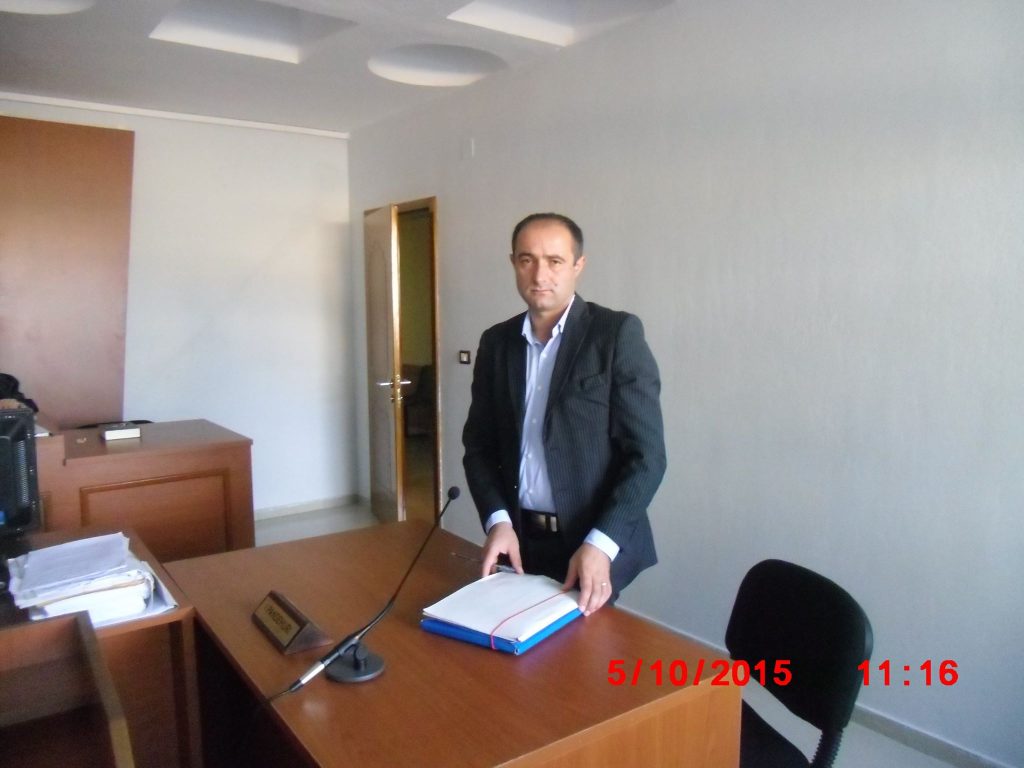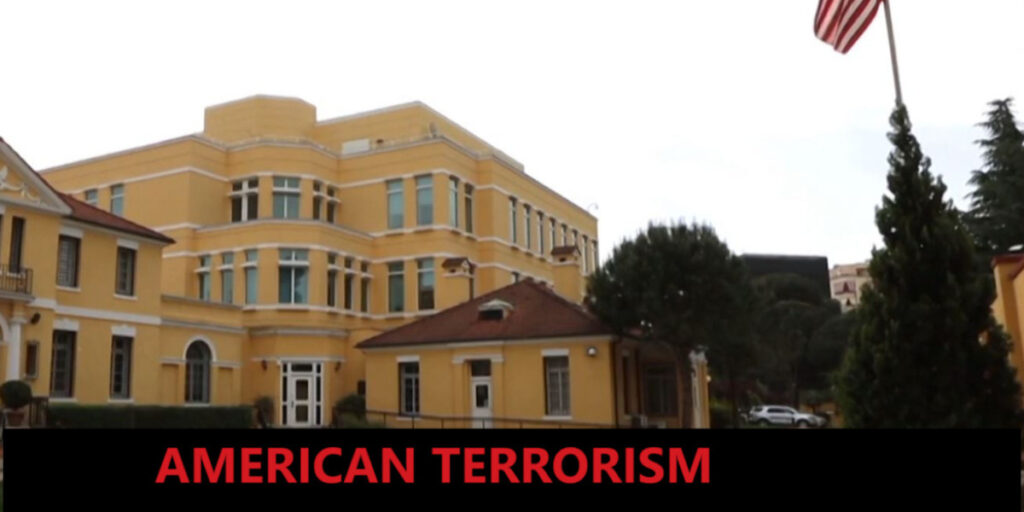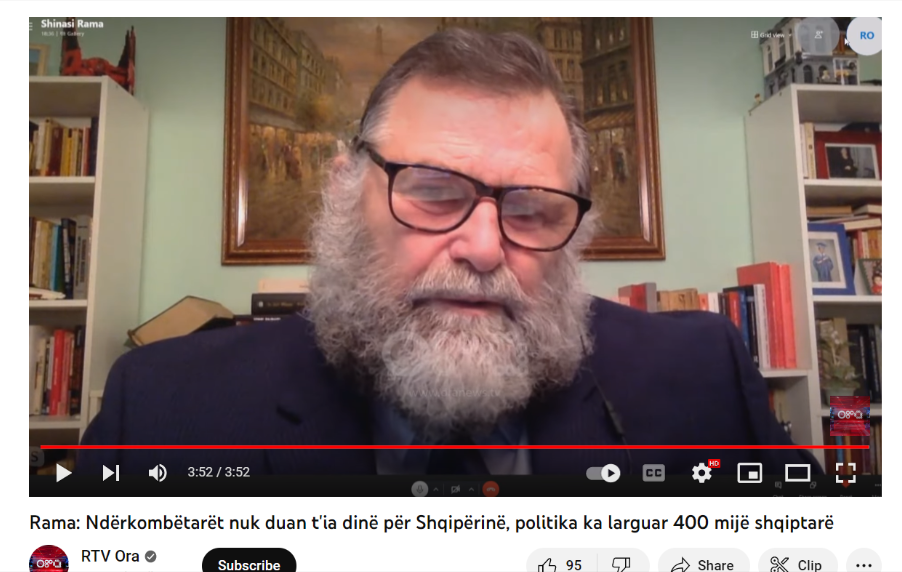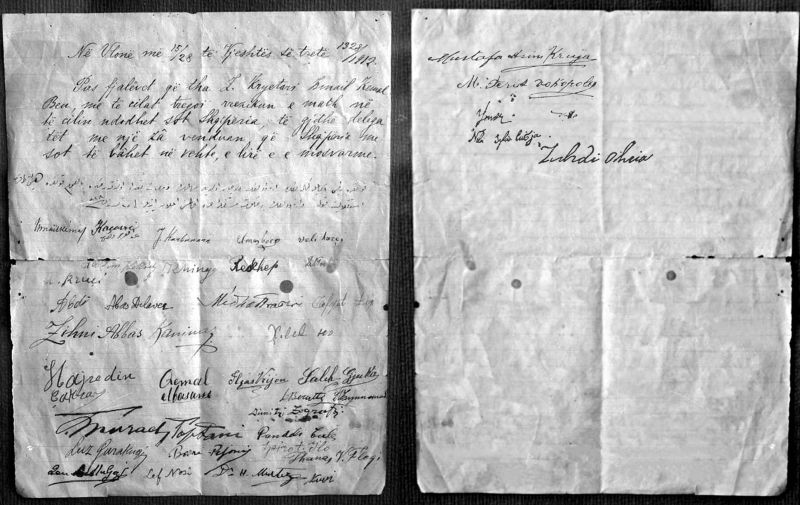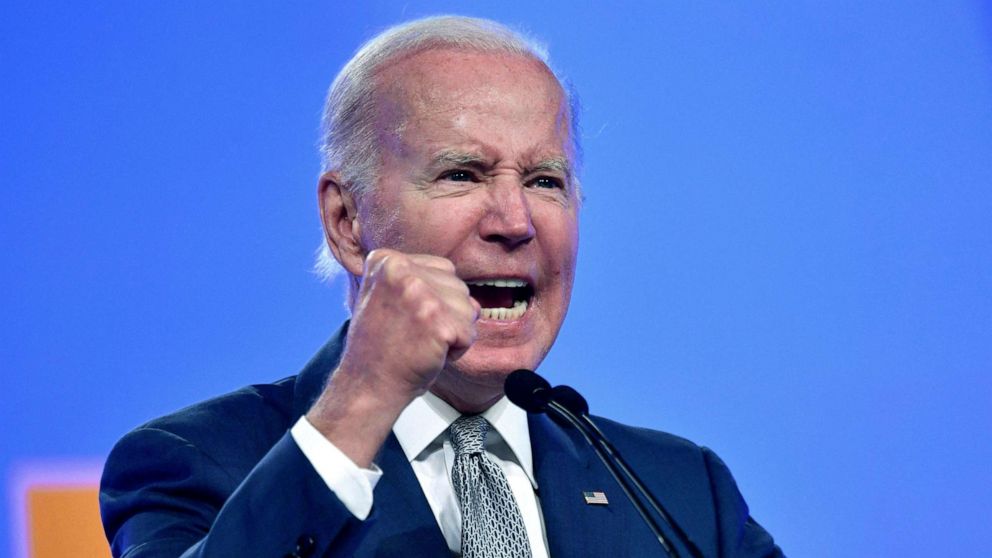A Detailed Report of Lushi’s Case: An Appeal to the European Parliament and to the German Bundestag
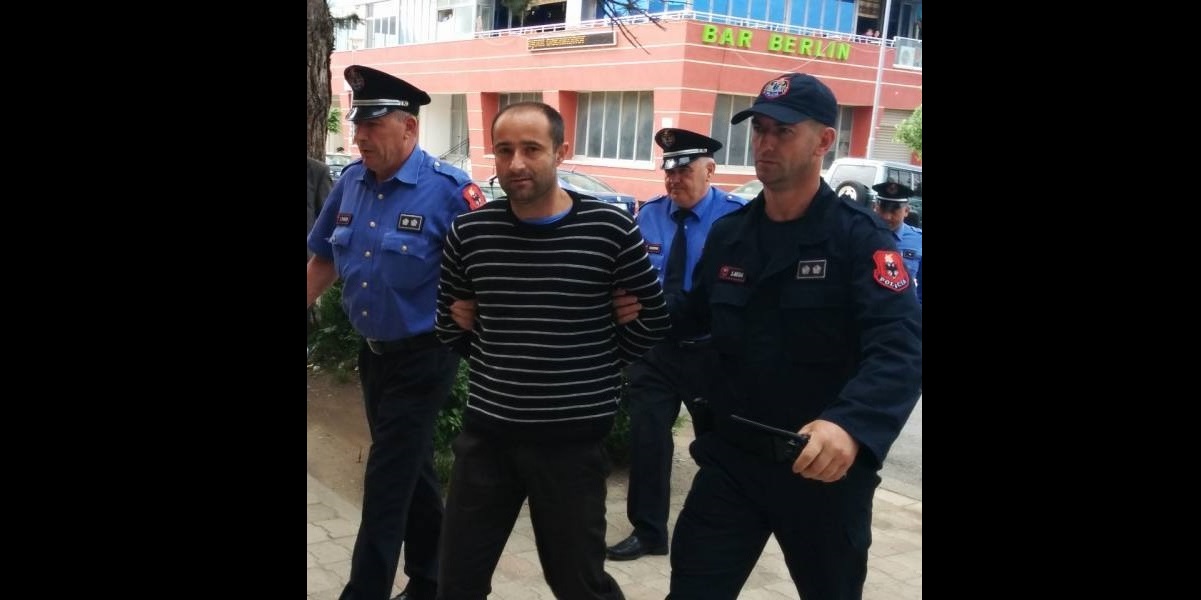
The content of the letter:
1. The reasons which led me to become a civil society activist
2. The petition
3. The protests
4. The interview I gave to Mr. Arian Çani (“Free Zone”) – ‘My Crime’ for which I faced charges
5. The last protest and the brutal arrest
6. The charges and the defense
7. The trial and the ordeal I went through
8. The role of the opposition with regard to my case
9. The role of some organizations, embassies, officials, and the media in general
10. The end of my trial and the verdict.
1-THE REASONS WHICH LED ME TO BECOME A CIVIL SOCIETY ACTIVIST
Almost a year after the new socialist government came to power, Prime Minister Edi Rama announced the implementation of a new policy regarding the electricity bills and debts as part of the supposed package of ‘state building’ policies. It is a fact though that when the Prime Minister took the office in 2013, the energy sector, i.e. the electrical power sector, of Albania had been going through many problems such as corruption and mismanagement, which culminated with the termination of the contract between CEZ Group and Albania government, by causing Albania financial damage of millions of dollars.
So, one of the common problems which this sector suffered from was the unpaid power bills. Many families and small business consumers didn’t pay the bills over many years, especially in remote regions and rural areas, partially because they were very poor and couldn’t afford it, and partially because of the mismanagement of the corporation. At the same time, due to political reasons, the government would be ‘lenient’ towards certain areas which were considered as stronghold of the ruling party, by not pushing power consumers to pay the bills, and this happened particularly with the previous government. Therefore, a very large percentage of consumers in areas such as Kukes and Has were allowed to use the electrical power even though they never paid for it.
Nevertheless, the previous government not only did not cancel the debts but also applied very high delay fees. Also in many cases, consumers would get fines and never were they notified about them, and even on those fines, there was a delay fee applied. As a result, more than 90% of power consumers in Kukes and Has, for example, ended up having thousands of dollars accumulated debts to the power corporation.
On the other hand, the new socialist government started to carry out a very absurd and negative policy regarding these debts. All of a sudden, the electrical corporation (OSHEE) with the help of State Police began cutting off the power connections to all the consumers that were in debt, and at the same time, many of them were taken to jail. The power consumers who were in debt also were given no choice other than the signing of a new contract with OSHEE whose terms included two things: the power consumers should start immediately paying the monthly bills, and second, they should pay 25$ as a monthly payment for the debt (unpaid bills plus delay fees), regardless of the total amount of the debt
itself.
Apparently, everything seems OK, a governmental corporation that forces its consumers to pay back the debt, but the reality is completely different. First, these consumers were ‘allowed’ by the government to use the power and they never would mind even checking the electrical meters how much they spent. Second, the delay fee was applied without any justification because it had no impact in terms of pushing consumers to pay the bills on time. It simply functioned as an interest rate as if applied by a commercial bank. The government is not a bank; it has social and welfare responsibilities.
Third, the government imposed at the same time two things on these consumers: to pay the monthly bills and also 25 $ on top of that as a monthly payment for the debt. So, it became a big financial burden for thousands of families, especially in Kukes and Has. Forth, the implementation of this policy was at a very inappropriate time, because it was the beginning of winter, and also it didn’t take into consideration the consequences and the extremely bad economic conditions that these families were living in. In short, the implementation of this policy caused real social and economic chaos.
In addition, the implementation of this policy by means of force and police pressure left many families without hope. The economy was doing bad, the unemployment rates were very high, the remittances went down drastically, and on top of that there was and still is a very irresponsible government whose goal is to ensure the welfare of a bunch of people who rule the country and control everything, who live in very luxuries houses and drive expensive cars, way more than they could afford based on their declared income.
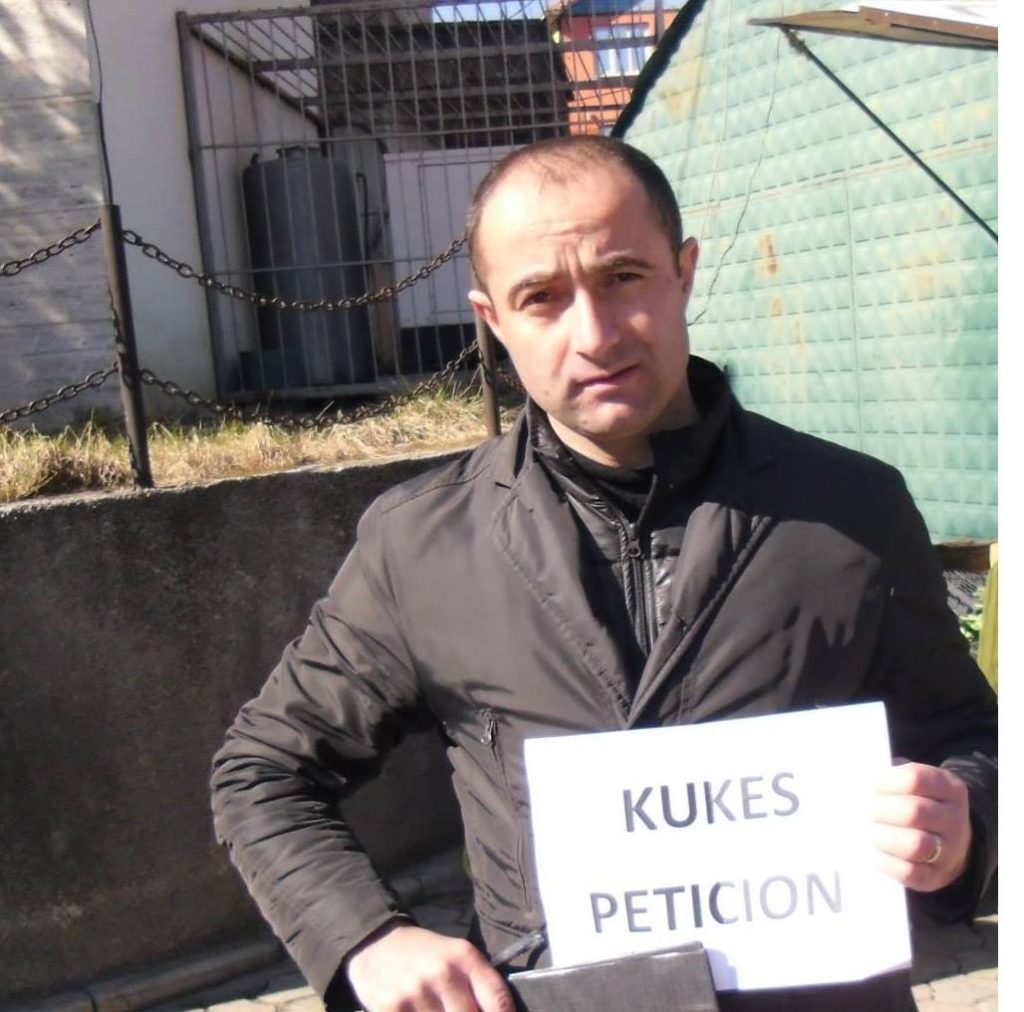
2-THE PETITION
Given the economic difficulties that the region of Kukes was going through as a consequence of the Government’s policy regarding the power debts, I decided to take the initiative and raise my voice against this negative policy. The government, according to me, is not a profit organization whose primary goal is to make money no matter how. On the contrary, the job of a government is primarily to secure and promote the welfare of every citizen. In this regard, the government of Albania disregarded altogether the negative effect that the power-bills policy might have on the population.
It was February 18 when I started collecting signatures for the petition against this policy. The petition was signed by 2358 citizens from the county of Kukes and Has, North of Albania, where each signer was identified by his or her ID number. For over two weeks I, Nderim Lushi, personally traveled from one village to the other giving the people the opportunity to sign the petition. I had no financial or logistic support. It was completely undertaken by me individually and independently. There was no motivation or recommendation from any political party or organization. I did it on my own simply because my fellow citizens had no voice to speak for them. Unfortunately, the opposition never raised this problem in the parliament, and this even increased the despair of the fathers and mothers who had no food for their kids.
On other hand, while I was having people sign the petition, I learned of the bitter reality that the majority of the families in Kukes and Has were in families living in misery, old people not having enough money to buy their medicine, kids who even abandon the school because they did have enough money to buy books and clothes, and on top of that, they would suffer also from the cold of the winter because they could not afford to pay for electricity bills; they didn’t have other alternatives to heat their houses and apartments, especially in urban areas, because this whole operation regarding power debts started all at once, not gradually.
The petition was submitted to the Prime Minister’s Office on March 12, 2015. In a nutshell, we requested from the Prime Minster Mr. Edi Rama to cancel all the power debts and delay fees in the counties of Kukes and Has considering the poverty and extreme economic conditions that the families of these regions were living in and that the majority of them could simply not afford to pay the monthly bills and 25$ on top of that. Another reason which was stated on the petition was the possibility of a massive exodus of Albanian asylum seekers in European Union countries. We strongly warned the Prime Minister that this restrictive policy not only worsens the economic conditions of such poor families but also it could cause massive asylum seekers from Albania as the only solution for them, and this is what happened in fact.
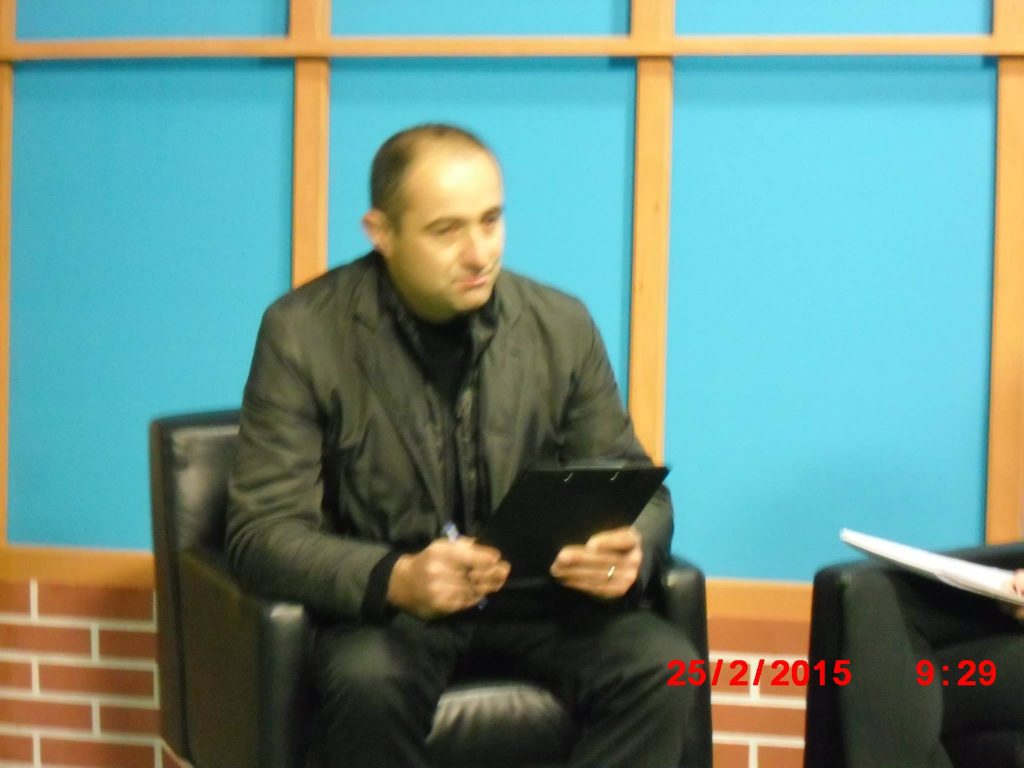
3-THE PROTESTS
During the time when I was collecting the signatures for the petition, as I mentioned above, I had the chance to talk to many people, mostly heads of families, and listen to their problems. I met with them on the streets, in cafés, at their homes. I saw very disappointed people who were in desperate need of financial support. They were in great despair because instead of getting support from the government, they would get restrictions and only restrictions. They were in despair also because there was no voice to speak for their problems. They were literally abandoned. There were families completely abandoned by the government; they even were left in darkness because their government cut off the electrical
connections due to power debts. So, I was really shocked by what I saw and what I heard directly from these people themselves. But most importantly I saw and met hundreds of families who were about to leave Albania and seek asylum in European countries, mainly in Germany, as the only solution to their economic problems.
Therefore, seeing that many people were about to abandon Albania, I committed myself to do everything I could as a citizen of this country to stop this infamous exodus of Albanian asylum seekers. Apart from the petition, the protest is one of the democratic and legal means of expressing one’s disapproval of a policy and its negative consequences, according to the Constitution of Albania. So, I along with the other petition signers decided to hold a rally in the city of Kukes on March 2, 2015, in support of our petition and also warning the government about the massive exodus of people that plan
to leave Albania. The participation in that rally was admirable even though many people who wanted to be part of it were stopped by political supporters, especially the opposition party.
After I submitted the petition on March 12, 2015, to the Prime Minister’s Office, I organized three more rallies in Kukes as an intensification of our protest against the Prime Minister’s policy regarding power debts, which was leading the country towards the scandalous exodus of asylum seekers, and also because the Prime Minister never reacted to the petition. He chose to ignore rather than to challenge the problem. In fact, I had never considered organizing a rally for such a problem because I had always expected the Prime Minister to be willing to listen to the people’s problems and try to solve them
because this is what he had promised before he was elected. Unfortunately, he did the wrong thing: to ignore the problems, difficulties, and concerns of his people, even in the case when the problem is addressed by means of a petition.
Furthermore, I participated in a meeting which the President of the Republic of Albania, Mr. Bujar Nishani, held on April 26, 2015, in one of the most northern villages, where he spoke about the people who were abandoning Albania and seeking asylum in European countries. He raised some questions and made public calls on the government to be aware of this serious problem. On that meeting, I personally addressed the President himself on behalf of all the people who had signed the petition and on behalf of others who didn’t have the chance to sign it, and I requested from him as the head of the state to first acknowledge the problem, which he did, and to exercise his authority in order to find a solution for this problem. At the end of the meeting, I even gave him publicly a copy of the petition signed by 2358 people.
Even though the meeting and the words of the President seemed promising and positive, he, in fact, did nothing to stop this unprecedented exodus, when thousands of Albanians were leaving the country. He didn’t even call a meeting with the Prime Minister and other relevant officials to know more about the situation and to try to find a solution. Meanwhile, each and every day, hundreds of people would apply for passports in order to travel to European countries, not for tourism as the Prime Minister would say, not because they were striving for a better life, as some other politicians would say, not because they didn’t like the Prime Minister himself, as the opposition would say; none of these. They simply had no other choice given the economic conditions and the restrictions imposed by the government.
On the other hand, the reaction of the media to the government’s policy on power debts particularly and to the economic and financial restrictions which caused this exodus, generally, was almost absent. They were all blind to this massive number of asylum seekers and the reasons which led them to this decision. So, in a way, I was one of the rare voices to speak out about this issue. In each and every protest which I organized, I would request from the government to be cautious of what was taking place in Albanian in the XXI century and to take responsibility to find a solution for this urgent problem, which could even affect the international relations of Albania with the countries of Schengen area, by changing the visa policy with Albania. However, little did the media report on my protests because they didn’t fit their agenda.
In fact, even when I once was invited to be part of a television show called ‘Zone e Lire’ (Free Zone) on the nation channel TV KLAN on April 30, 2015, it was simply an effort to imprison my voice rather than help us to bring attention to the cause which I along with thousands of citizens were striving for. As a matter of fact, it was this particular interview with Mr. Arian Cani, the host of ‘the Free Zone TV Show’, that I was charged with ‘public calls against constitution order’ (Article 223, The Criminal Code of the Republic of Albania).
When I was invited by Mr. Arian Çani to be part of his TV show, I accepted his invitation right away because I always respected and I respect the media in its important role to inform public opinion about current issues and daily problems. I also believe that that the role of the media, as J.F. Kennedy said ‘it is not primarily to amuse and entertain, not to emphasize the trivial and sentimental, not to simply “give the public what it wants”–but to inform, to arouse, to reflect, to state our dangers and our opportunities, to indicate our crises and our choices, to lead, mold, educate and sometimes even anger public opinion.
But unfortunately, in my case, the media did exactly the opposite. It used its power and influence to do just the opposite: to lay the grounds for charges against me and then to put me behind the bars because my voice didn’t ‘resonate’ with certain agendas. My voice was independent and critical, and it should be stopped, according to the Albania politicians; and if needs be, it should be imprisoned. But when the media aligns with politicians’ agendas, and not with people’s problems, this is definitely the path towards dictatorship and tyranny.
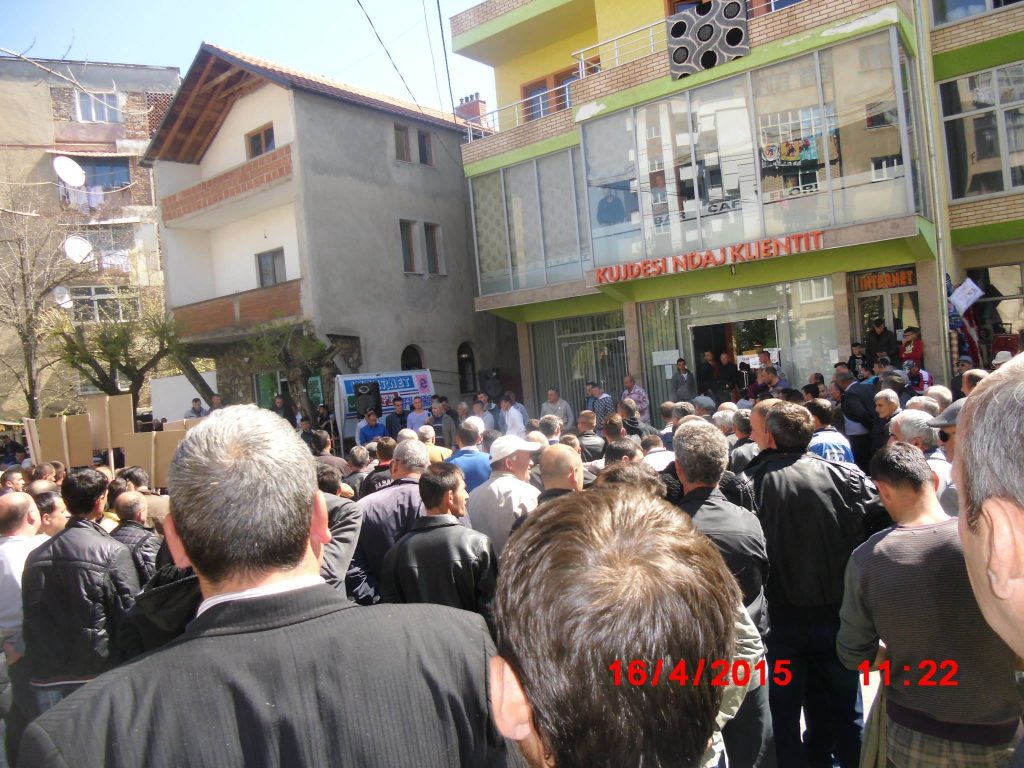
4. THE INTERVIEW I GAVE TO MR. ARIAN ÇANI (“FREE ZONE TV SHOW”) – ‘MY CRIME’ FOR WHICH I FACED CHARGES
Given the fact that one of the charges which I faced was based on that interview, I would like to highlight what in reality happened that night. But first, I would like to mention a couple of points before the interview itself. First, before I was invited to have the interview, I had announced that I was going to organize a rally, the fifth one, in the city of Kukes as the only legal and constitutional way to protest against the Prime Minister’s lack of response to our petition and to his indifference to what was happening, i.e. the exodus of Albanian asylum seekers. I planned to hold a rally on April 30, 2015, but due to another one which was planned on that particular day, I postponed mine, but I hadn’t decided yet about the new date and time. However, when I was invited for the interview, it was insisted upon me to decide the date and time of my announced rally because the interview itself, according to them, would not have any meaning without it.
Anyway, without thinking too long, I picked up May 4, 2015, to hold the rally for the simple fact that it was Monday. So, it was Friday, May 01, when I notify the chief of the police station (Kukes) in writing, no later than three days before the date of holding the demonstration (rally) [LAW No. 8773, April 23, 2001]. So far, everything was done according to the law of the Republic of Albania regarding the demonstrations in squares and places of public passages. Also, I would like to mention that the chief of the commissariat of the police (police station) was notified for two consecutive rallies on the same day:
one at the square beside the Municipality Building of the city of Kukes, and the second one, at the roadway out of the city of Kukes which connects the city itself with the highway “Rruga e Kombit” – “The Nation’s Highway”. The idea was to hold a small rally on one lane on the road where we intended to ‘stop’ for ten minutes cars and take some pictures with some travelers by telling them symbolically “DON’T LEAVE ALBANIA”, meaning ‘Stop exodus of asylum seekers. In any case, this was the plan and I notified the chief of the police station for both rallies since both the designated places were public
squares and passages. However, I was waiting for the chief of the police station to communicate to me any possible limitations, other conditions, or even prohibitions, which according to the law it should be done within 24 hours from the time the chief of the police station receives the application.
Nonetheless, on Friday, May 01, 2015, I traveled from Kukes to Tirana as a response to Arian Çani’s invitation for the interview. Mr. Çani also had invited in that show besides me two other prominent journalists, Mr. Artur Zheji, editor in chief of ‘Mapo’ newspaper, and Mr. Armand Shkullaku, the director of ABC news TV channel. Mr. Çani, the host of the program, had titled that interview “On May 4th, we will block the highway ‘Rruga e Kombit”, a title which I personally didn’t approve because it implied something I didn’t exactly intend to do, but, on the other hand, this was part of the tricks of the interview itself, and this is why I am reporting everything about it in details.
In the first part, the host asked questions about me, such as ‘who I was, ‘what did I want from the Prime Minister’, about my protests, the petition etc. I answered that “I am an average citizen, without any ambition to politics. I simply took the responsibility as a citizen to protest against a policy, the power debts policy, and a phenomenon, that is, the exodus of Albanian asylum seekers, which according to me was caused by the government’s restrictive policies regarding mainly power debts”. I also added that I was a local activist who had no support from any political party or other organizations and that all the organizational expenses were covered by my personal little finances.
In the second part of the interview, the host, Mr. Çani, would insist so much on questions regarding the government, the Prime Minister, politics in general, violent demonstrations, etc. things that didn’t concern me. In addition, Mr. Zheji would comment on what was being said so far in the interview, as if I was planning to oust the current government. He literally said “I think that the best solution is a negotiation between the protesters and the Prime Minister. I don’t think that the solutions come from blockades, stones, and sticks (as means of ‘fighting’).” He also added, “Even if the government falls, I
don’t think the situation is going to be better right away”. At this point, the other guest, Mr. Shkullaku, interrupted by saying: “Probably the government will not fall”, as if the whole talk was about whether the government should remain or go. It is really a shame how such journalists humiliate themselves professionally to this point.
According to me, Mr. Zheji’s comments were made not by chance and randomly, but to give the wrong impression of the purpose of my planned protest to the audience, as if I was planning to overthrow the government through a violent demonstration. Words such as ‘the falling of the government’, ‘sticks’, ‘stones’; or the question of Mr. Çani ‘are you going to bring arms with you on the rally?’, all these were said to superimpose the idea of violence on that interview. And this is exactly why I was charged with ‘public calls against constitutional order’ [Article 223, the Criminal Code of Albania], which I am going to explain this abhorred and false accusation in detail in this letter.
Here is what I plainly and clearly said during the interview: “I respect him (Prime Minister Edi Rama) because he is our Prime Minister. He has been elected by over one million Albanians. He should cancel the power debts (for residents of Kukes and Has) because this is the request of the people themselves. We are not a political party, and we have nothing to do with him politically. We are simply protesting against certain policies of this government, namely, the power debt’s policy”. Moreover, when I said that we will not take to the streets with nothing in our hands. Mr. Çani said “are you going
to bring arms with you?”, which, in my opinion, it was a very mischievous question. Even so, I clearly and sharply answered: “Absolutely not. But we will hold in our hand protest signs and banners, cameras, and above all, we will bring with us the spirit of democracy”. Then when I was asked by Mr. Çani that the Prime Minister Mr. Rama is responsible for everything (negative policies). I again answered that “I don’t represent any political party to oppose him. This should be done by political parties, by the Democratic Party, by you people of media. I am only opposing him for a particular policy, which, according to me, is the reason why thousands of Albanians are leaving the country every day and seeking asylum in European Union countries.”
To sum up, the purpose of this interview, as I said earlier, was to lay grounds to file the charges with ‘public calls for violence against me, for the only reason, I think, because I was an independent voice, without any support from the political establishment in Albania. Yet, in that interview, I unequivocally confirmed the opposite: that I am against violence, that I respect the Prime Minister, that I am not a member of any political party, and that I am only protesting against one thing: to stop implementing the policy of power debts in Kukes and Has, which is the main factor to cause the exodus of asylum seekers from Albania to EU countries. In fact, everything related to ‘public calls for violence against constitutional order’ was said by the host of the program himself, Mr. Arian Çani, and the other two guests.
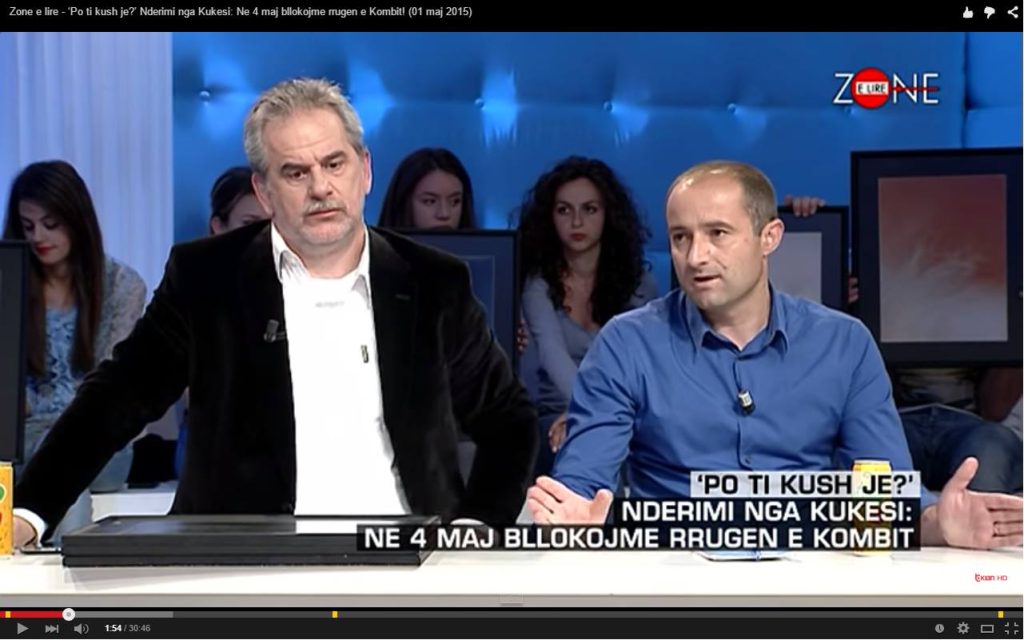
5. THE LAST PROTEST AND THE BRUTAL ARREST
On May 4, 2015, at 12:00 I, as the organizer of the protest, along with dozens of citizens gathered at ‘Skenderbej Square’ in Kukes to hold the planned rally. I delivered a speech in front of the protesters, where I emphasized the reason why we were holding that street protest. I also addressed the Prime Minister publicly to cancel all the power debts for the residents of Kukes and Has because most of the population of those two regions live in extreme poverty, and as a result, people are leaving Albania and seeking asylum in EU countries. Then I called out to the protesters to avoid any violent action. After a short time, we left the square and headed to the other designated place of the second rally, which was
the roadway out of Kukes, where we planned to stay for 10 minutes on one of the lanes of the roadway out of Kukes and take some pictures while holding some signs such as “DON’T LEAVE ALBANIA”, “STOP EXODUS” etc.
On our way to that place, which was roughly three hundred meters from the square where we held our first rally, a group of police, almost outnumbering the protesters, stopped us. I called upon the police to get out of our way and that what they were doing was illegal. In a moment, while I was being told that they were going to arrest me, I was surrounded by a group of police. They hit me until I fell down. Even when I fell down, they still continued kicking me. While I was being dragged by some police officers, the chief of the criminal police pulled out his gun and pointed it towards nonviolent protesters and also towards me. The same person, when I was being thrown into the police car, he hit me with his gun again and again for no reason.
This event was considered the most negative and serious one after the demonstration of January 21, 2011, when four innocent citizens were shot to death by Republican Guard forces. So, this event showed once again how fragile the democracy in Albania is. Luckily, that day there was good media coverage and this news was the headline of every newspaper.
So, the second rally at the roadway was stopped. I was taken to the police station, where I was reported the arrest on ‘illegal assembly’ and ‘public calls for violence against constitutional order’ [Articles 262, 223, Criminal Code]. Both articles together prescribe a punishment by a fine of up to 4 years of imprisonment. Three days after I was arrested by state police, on May 07, the court of First Instance in Kukes considered the arrest as legal and that I should remain in jail, with the right to appeal against this decision to the Appellate Court in Shkodra within 10 days.
While I almost was abandoned in jail, it was only my relatives who helped me appeal against the decision of the Court of First Instance Kukes to the Appellate Court in Shkodra. On May 20, after staying 16 days in jail, the Appellate Court released me with a promise to appear to a judicial police officer every first and third Monday of each month until the investigation is done and the court decides on my case.

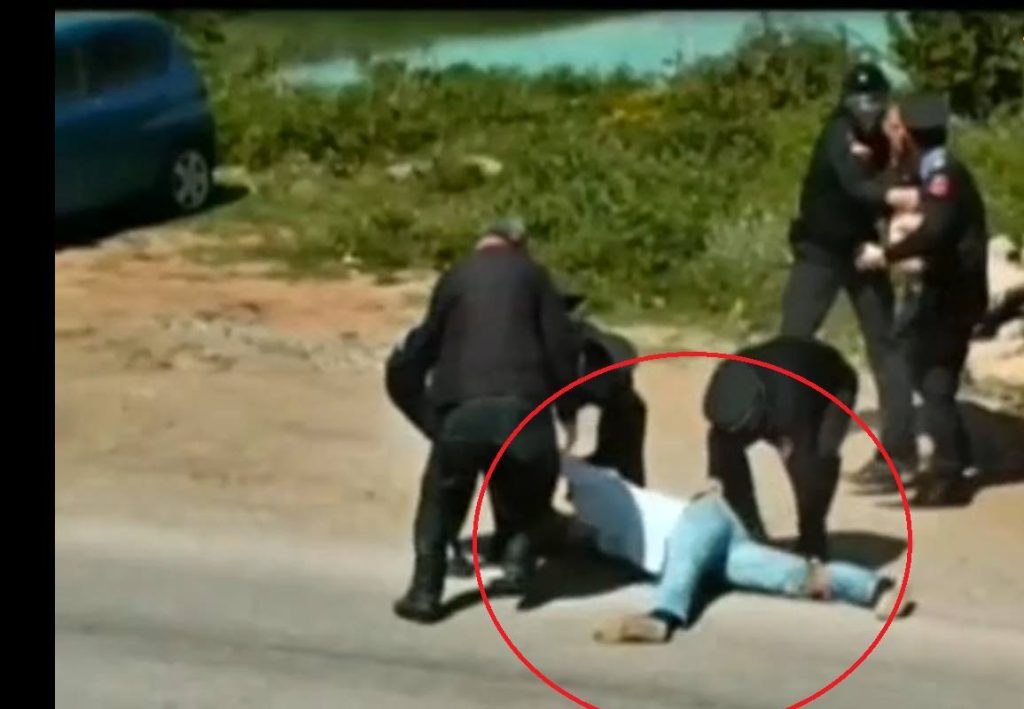
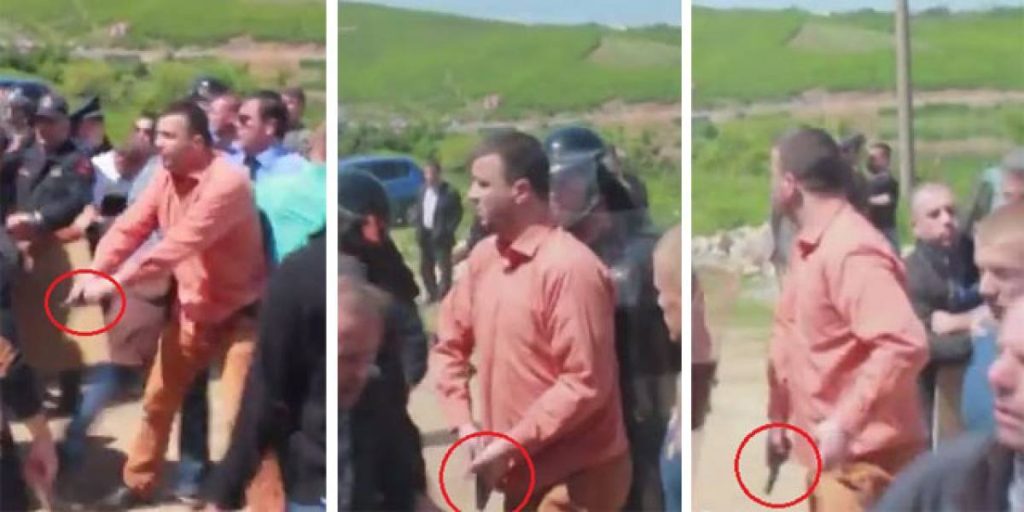
6. THE CHARGES AND THE REFUTATION
In short, I was charged with “Organizing the assembly of people in squares and places of public passage, without prior permission by the competent authority according to the specific provisions or when organizers breach the conditions provided in the request for permission” and this “constitutes criminal contravention and is punishable by a fine of up to one year of imprisonment.” [Article 262, the Criminal Code of The Republic of Albania] I also was charged with “Public calls to commit violent acts against the constitutional order”, which “is punishable by a fine of up to three years of imprisonment.” [Article 223, the Criminal Code of the Republic of Albania.
So, in total, I could go to prison for four years. Not only that but taking into consideration the fact that the Parliament of Albania recently has passed a law called ‘the Decriminalization Law’, whoever is charged with certain crimes, including article 223 (public calls for violence), can never work in certain governmental and public positions and pursue certain political careers. Therefore, the punishment with such charges is double. Both accusations are groundless, according to me, and in the following paragraphs, I am going to give my reputation.
With regard to the first charge, the main point of the prosecutor was that I was not given special permission by the chief of the commissariat of Police (the police station) in the Kukes, which is required by law. And specifically, Law No. 8773, for Public Assembly says: Notification of the State Police
Article 5
1. In the case of a demonstration in squares or places of public passage, the organizer and director are
obligated to notify the chief of the commissariat of police in writing no later than three days before the
date of holding the demonstration.
2. A notification in writing should contain:
a) the identity and address of the director and organizer of the demonstration;
b) the purpose of the demonstration;
c) the date, place, the hour of starting and ending of the demonstration and its itinerary (if there is one);
ç) the approximate number of participants and the number of persons helping in the conduct of the
demonstration;
d) the persons who will speak at the demonstration.
3. If the written notification does not contain the elements contemplated in point 2 of this article, it is
returned to the organizer and director of the demonstration to be completed. They shall submit it again,
completed, no later than 24 hours before the time when the demonstration will be held.
Article 6
The obligation of the Police
1. The Chief of the Commissariat of the Police shall, within 24 hours of receiving the application
according to point 2 of article 5 or within 8 hours from receiving the application according to point 3 of
article 5 of this law, by reasoned decision:
a) communicate to the organizer or director of the demonstration the possible limitations and
prohibitions or other conditions, also including the number of persons who will assist in its conduct;
b) give a copy of the official order designating the police officer who will be responsible to assist and
observe the conduct of the demonstration.
2. The Chief of the Commissariat of the Police notifies the director of local government and the prefect
in writing about the demonstration.
According to the law, I should notify the Chief of the Commissariat of the Police in writing no later than three days before holding the gathering. And so I did. I notified the Chief in writing about the two rallies planned on May 4, and in the application, I included all the above-mentioned points in Article 5. According to the law as well, the Chief of the Commissariat of the Police should within 24 hours of receiving the application according to point 2 of article 5 communicate to the organizer of the demonstration the possible limitations and prohibitions or other conditions, etc. However, the Chief of the Commissariat of the Police communicated to me in writing the prohibition of the gathering only
one day before the protest and two days (48 hours) after receiving the application. So the communication was too late. The point is that the Chief of the Commissariat of the Police violated the state law, and there is a very important reason why he or she should communicate to the organizer the possible prohibitions, in case there is any because the organizer needs time to announce the cancellation of the gathering. People already had been informed of the rallies on May 4. As long as the
Chief of the Commissariat of the Police didn’t communicate anything within 24 hours, I considered this lack of communication as an approval of my planned protest, or as a lack of prohibitions and limitations.
So, there is no basis for this charge, that is, illegal protests. One might be wondering that as long as I didn’t get permission from the police, the protest in itself is illegal. The answer is simple: the chief of the police station does not give permissions for protests. It is, in fact, the Constitution of Albania which gives the right to every citizen of Albania to protest and organize rallies, [Article 47, the Constriction] “1. The freedom to have peaceful meetings, without arms, and to participate in them is guaranteed. 2. Peaceful meetings in squares and places of public passage are held in accordance with procedures provided by law”. The chief of the police station only communicates prohibitions and limitations, and this should be done within time limits which the law prescribes, in this case, within 24 hours from the time of receiving the application, not 48 hours.
With regard to the second charge, it was completely based on the interview, of which I spoke in detail above in a separate section. Unfortunately, it seemed that everything was preplanned before the interview itself. However, as I mentioned earlier, I never made any public calls for violence against the constitutional order. On the contrary, during the interview, I declared exactly the opposite that I am not against the Prime Minister and that I respect him.
The prosecutor, Mrs. Rita Gjati, who conducted the investigation against me, gives the impression that she never watched that interview, on which she filed charges against me. This article of the Criminal Code, I think, was picked up to charge me with even before I gave the interview on KLAN TV, and the interview was simply meant to justify the accusation. In fact, the investigation file which Mrs. Rita Gjati put together was really just an inaccurate transcription of the interview which even she herself was not familiar with. She had guessed that words such as ‘the government will fall’, ‘stones’, ‘sticks’, ‘arms’, ‘violence’, which were mentioned by the other two guests and the host of the program, were spoken by me, because, according to her, these words were supposed to be spoken by me in order to justify the charges; and this was their scenario against me. She simply made a grave mistake, not justifiable for a prosecutor. The interview is available online and anyone can have access to it (https:// www.youtube.com/watch?v=-JoQUHLGwOc ). It is clear though why they picked up this specific article on Criminal Law. By that time, this article was part of a bill called ‘Decriminalization Law’, which the Parliament of Albania’ has recently passed it. According to this law, whoever bears certain criminal records, including the one in Article 223, will be prevented to pursue the most part a political career. So, by charging me with ‘public calls for violence, I will be excluded from Albanian politics for a lifetime. There is no surprise; independent
voices, such as mine, are not welcomed.
I want to emphasize here also the fact that no one before me has been charged with this crime in Albania. It is the first case after the collapse of communism that has been charged with ‘public calls for violence against the constitutional order.’ Even in the most extreme cases, such as in 1997, when Albania was in complete chaos and many people died, even in 1998 when the Democratic Party of Albania almost did a coup d’état in reaction to the assassination of the first leader of this party Mr. Azen Hajdari, even on January 21, 2011, when the Socialist Party of Albania organized a violent demonstration in front of the Prime Minister’s Office Building when four people were shot dead by the Republican Guard of Albania, no one was charged with ‘public calls for violence against the constitutional order’ where, in fact, the violence was evident in such demonstrations. However, this is Albania where average citizens should face such serious charges even for just an interview on TV.
To conclude, I want to add another fact which is very important. According to article 262 of the Criminal Code, “participating in an unlawful assembly after a warning has been made to disperse (it), constitutes criminal contravention and is punishable by fines up to three months of imprisonment.” And on May 04, when I was arrested, there were many citizens who participated in that rally, which was considered unlawful. Then why there was no one else arrested for participating in unlawful assemblies? The reality is that no one else has been arrested and charged for participating in that rally. It was only me because that was the plan, and it was not the contravention of the law the reason I was arrested.
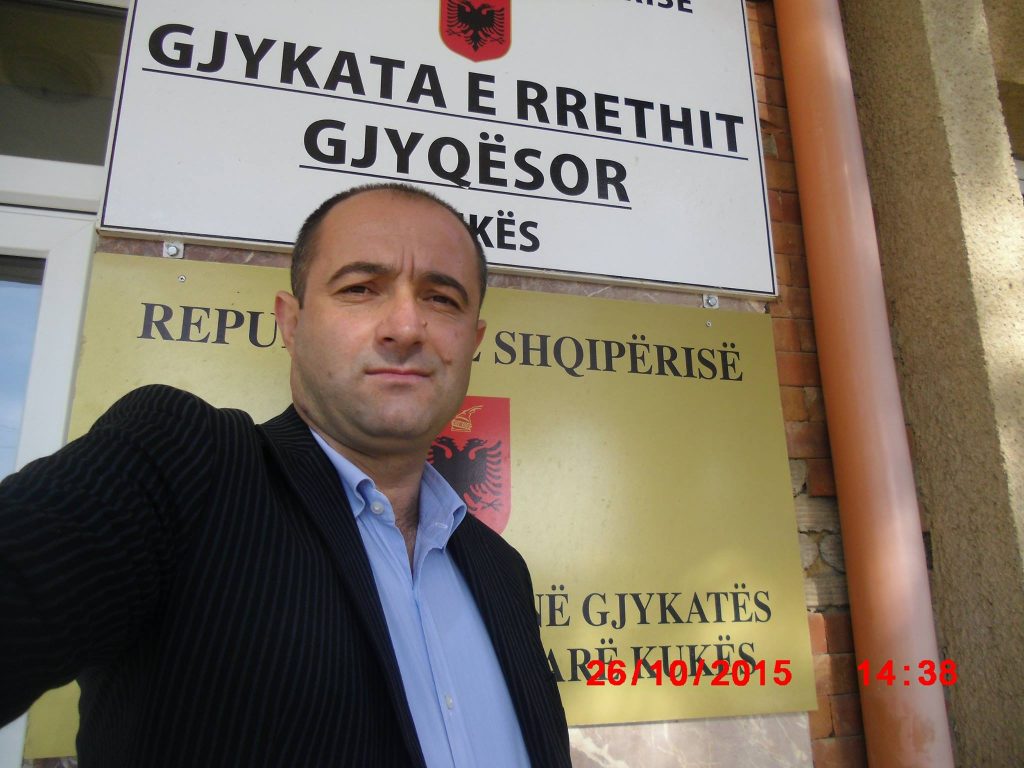
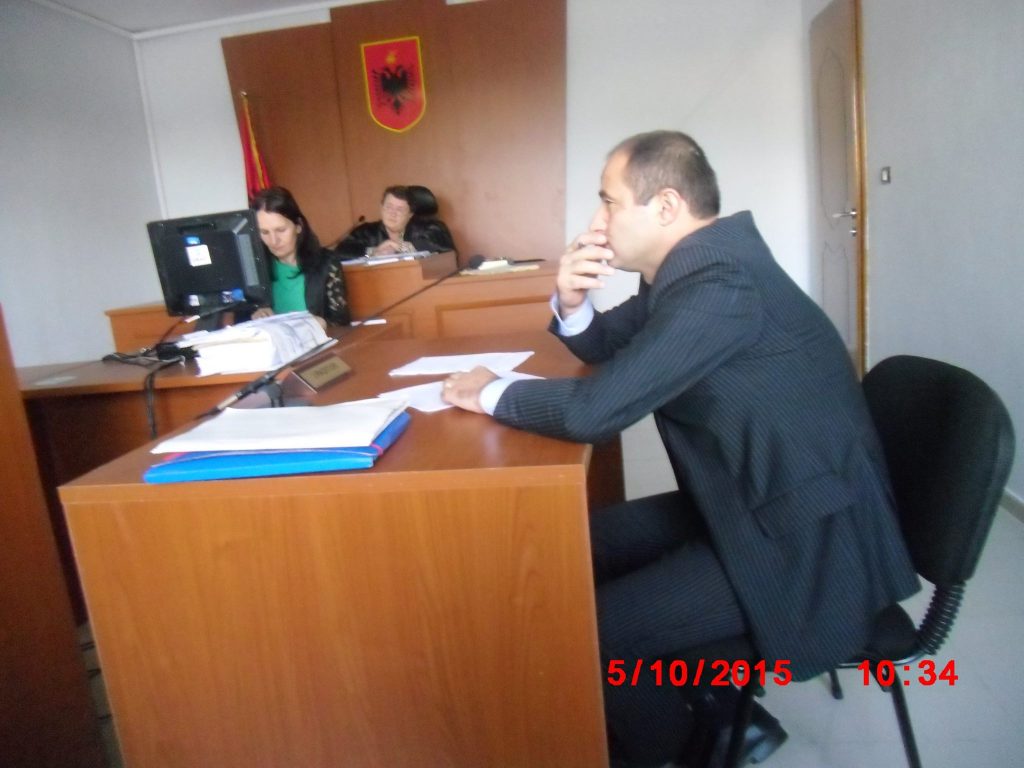
7. THE TRIAL AND THE ORDEAL I WENT THROUGH
On my first appearance in the Court of First Instance, Kukes, the prosecutor laid the charges against me. I plead not guilty and the judge decided to go on trial while holding me in jail while the investigation was going on. The Appellate Courte released me from jail with a promise to appear every first and third Monday of each month until the final verdict because the Court of Appellate decided to go on trial as well.
During the trial and even before the time of trial, I faced many problems which I didn’t expect. The first serious problem I had was with the judicial officer to whom I had to appear on certain dates as the Appellate Courte decided. On the first meeting with him, he told me that the investigation was going on but it will not take a long time. Meanwhile, he said, there is no need for me to come to him because he can call me to inform me about the court proceedings. It was a matter of a short time when I received a letter from the prosecutor letting me know that the investigation has been done and I only had to wait for the beginning of my trial.
Almost after a month after the completion of the investigation, I went to the prosecutor’s office to ask about my date of the first stand in court since it had been a long time since my last communication with them. The prosecutor told me that the stand will be on July 16, 2015, and in addition to this, she told me that she was about to request from the judge to reconsider the decision of my release because I had violated the promise to appear on every first and third Mondays of each month. I told her that I was told by the judicial police officer to do so. Anyway, I had to inform the People’s Advocate, Mr. Igli Totozani, about what was going on in order to avoid this play of words.
Mrs. Rita Gjate, the prosecutor, had planned in fact not to notify me about the date of the court stand, and my absence there would have been for her a reason to request from the judge to return me into jail because ‘supposedly’ I didn’t abide by the Appellate Court’s condition. After all, the whole point was to keep me in jail.
Anyway, two days before the beginning of the trial, which was July 16, I was told by different people, with official positions, not to come to the court because the prosecutor will be absent and there is no court stand on that day. It was insisted upon me not to waste my time to go there. However, I went to the court only to know about the next date. While I went there, the prosecutor showed up and read the charges against me and so the trial began. It was at this point in time when I came to realize why I was told not to go there because my absence would have justified the prosecutor’s request from the judge to get me back into jail. In the second letter which I sent to all the Members of the European Parliament, I have mentioned this fact.
Furthermore, during the trial, I was told by many people in politics to leave Albania and go to European Union countries and seek political asylum because there is no justice in Albania and the imprisonment of mine was inevitable, especially facing charges which prescribe a punishment of four years of imprisonment. I was implied also to give bribery to the prosecutor to at least dismiss one of the charges. I also was told that it is not a big deal to go to prison for some months because after all, it was a fact that I had criticized the government. So, they tried every way possible to compromise my principles, my innocence, and also to ruin my reputation.
In fact, had it been for the judicial system in Albania, today I would have been in prison. It was only the internationalization of this case that put the judicial system under pressure to offer me to some point a fair trial, even though it was not fair completely. First and foremost, I contacted all the Members of the European Parliament, each and every one individually, and their reaction has been amazing. I have received letters and emails from the highest officials of the European Parliament and its Delegations. I contacted all the diplomatic representatives in Tirana. I would like to single out His Excellency Mr. Hellmut Hoffman, the Ambassador of Germany in Tirana for his help and attention.
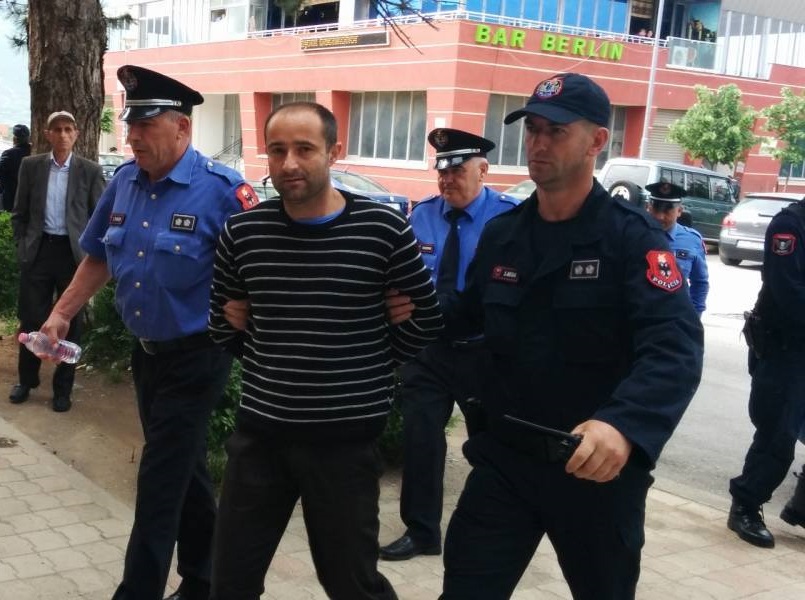
8. THE ROLE OF THE OPPOSITION WITH REGARD TO MY CASE
It is common sense to think that when one criticizes the government, he will not be looked at nicely by authorities. But what was really not common at all with regard to my case was the role of the opposition in Albania, more specifically the role of the Democratic Party. Starting from May 04, when I was arrested, until the end of my trial, the role of this party has been very negative and destructive, and I never understood why.
To begin with, on May 04, when I got arrested brutally, which marked the very serious incident of the state police, the reaction from the Democratic Party has been disappointing. They criticized the violence of the police forces against civil and peaceful protesters in general, but they never requested that I should be treated with justice, as they normally do when their political supporters get arrested. I was a civil society activist, and this is the role of the opposition: to stand with civil society. Speaking of reaction, the leader of this party, Mr. Lulzim Basha, never reacted officially and publicly to condemn the violence of the state police and my arrest. Also, parallel with my rally, the Democratic Party organized another political rally in Kukes completely unexpectedly, which caused a lot of problems and confusion.
Besides, during the campaign before the local elections held in Albania on June 23, the Democratic Party used my name and my case in each and every meeting with voters in the region of Kukes, trying to gain support among the people who had signed the petition and who had stood by my side. On the other hand, its public reaction regarding my court case and the ordeal which I went and still am going through has been absent. Right now I am facing political pressure from this party more than the ruling party. I want all the Members of the European Parliament to take notice of this very fact because the Democratic Party shares the same responsibility for the democracy and rule of law in Albania as the government.
Meeting the corrupt, backstabbing, irresponsible, and immoral president of Albania, just days before the brutal arrest. The meeting with the President came out to be the biggest mistake that a free Albanian citizen can make. The president fueled and inspired the supporters of the protests to go out and to protest, thinking that we have the President on our side, but the day of my brutal and unprecedented arrest, he, in collaboration with US Embassy in Tirana, staged a visit of him in Washington DC. He never reacted to the brutal arrest, his silence was followed even by U.S. Embassy in Tirana.
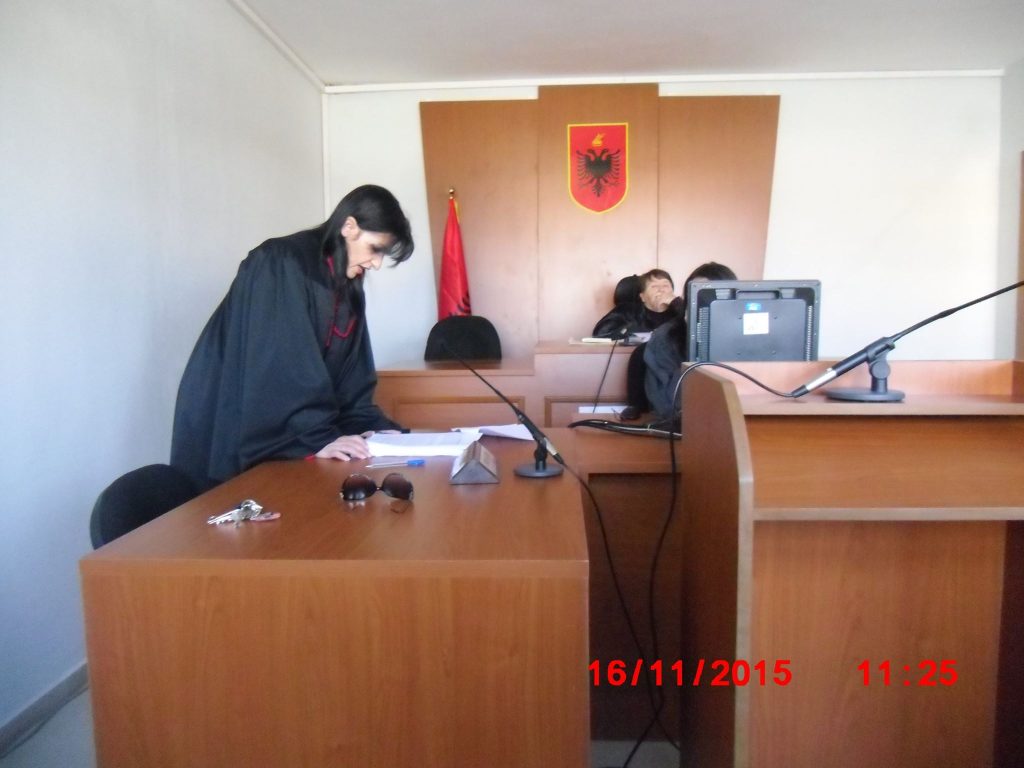
9. THE ROLE OF SOME ORGANIZATIONS, EMBASSIES, OFFICIALS, AND THE MEDIA IN GENERAL
First, I want to emphasize the role of the People’s Advocate, Mr. Igli Totozani. When I was arrested on May 04, 2015, he reacted publicly to the brutality and violence of the state police towards me primarily and other protesters secondary by strongly condemning it. One day after my arrest while I was in jail in Kukes, two representatives of the People’s Advocate came to Kukes to inspect my condition and the way I was being treated by the police in jail. Moreover, even after I was released from jail, I have kept in touch with the People’s Advocate regularly and I have notified him about any infringement by the judicial system. The consideration and attention of the People’s Advocate for my case became even more resolute when he appointed a special commissioner responsible to follow my case. So, his role was very positive and helpful.
Second, I want to single out the role of the German Embassy in Tirana. When all the diplomatic representatives in Tirana were contacted and appealed for help about my case when I was in jail and after I was released, the answer of the German Embassy to my appeal was distinguished, without denying other embassies’ reactions. I was contacted by His Excellency Mr. Hellmut Hoffmann himself and I was promised that he will do his best, as much as his role as an ambassador allows him do, to draw the attention of certain organizations and officials whose pressure and reaction could increase the chances of a just treatment of mine by the Albania judicial system.
Moreover, I want to mention that also OSCE Presence in Albania has had a positive role with regard to my case. A representative of this organization has attended some of the court hearings, even though I expected more from it.
Third, considering the fact that I was facing problems with procedural rules and the way I was being treated in the Court of First Instance Kukes, I notified the Ministry of Justice among others about these problems. Recently I received a letter from this ministry, through which I was told that the Ministry of Justice has gone through some of the court hearings’ audio records in order to verify the procedural aspects of my trial. I was also recommended by the Ministry of Justice about some legal ways that I could file complaints in case I consider it necessary.
Last, I want to point out the negative role and indifference of the media in general. I was almost censored completely by the media. The event of May 04, the serious incident of the state police and my arrest, was reported widely in the national media, but this is only an exception. The reason why generally my protests were not reported by the media, and even when they reported something they did it in a negative and destructive way, is that I was independent and not affiliated with any political party. This bitter fact shows that the media in Albania is there only to serve political parties and not the public
interest. In fact, the only time I was invited by a TV program to give an interview, it was used against me by facing serious criminal charges, i.e. ‘public calls for violence against the constitutional order.
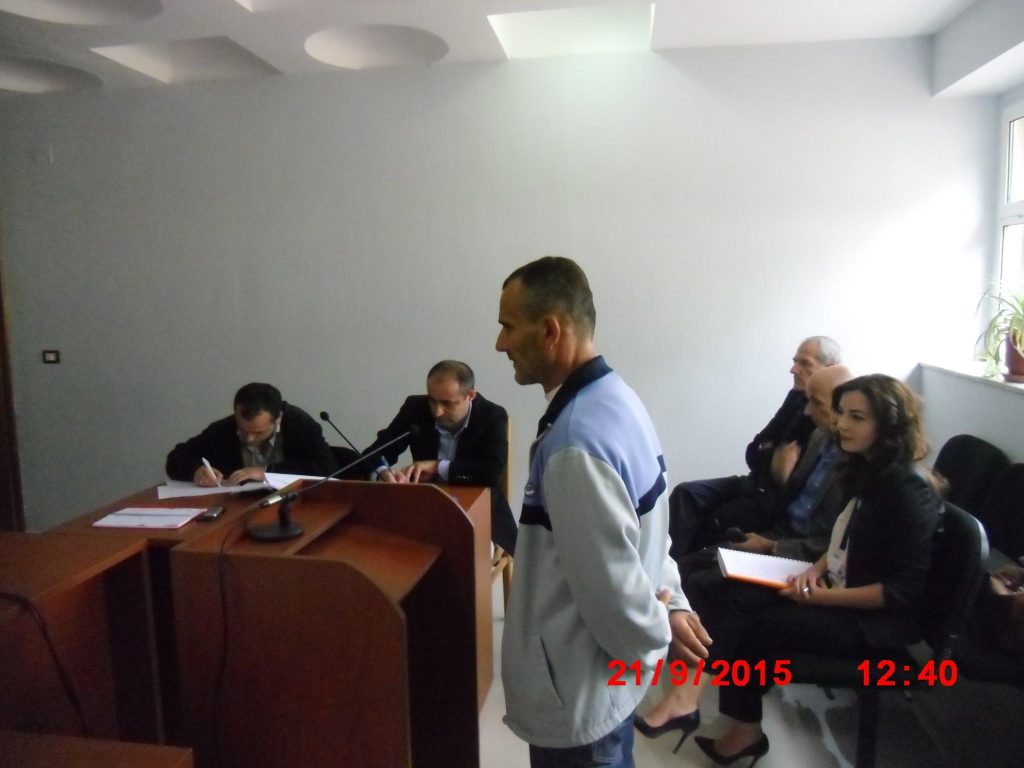
10. THE END OF MY TRIAL AND THE VERDICT. (court of the first instance)
The trial lasted more than five months. It started on July 16, 2015, when the prosecutor read out the case against me and reconfirmed the charges. Then in a couple of hearings, the prosecutor brought some witnesses, who mainly were police officers and some other citizens from the city of Kukes. Even though they were under oath, many of them gave completely false evidences. For example, one of them gave evidence that the police didn’t use their guns during the protest, while this fact is easily verifiable on the video which is accessible online where the chief of the criminal police points is his
gun towards protesters. This incident was even criticized by the Minister of the Ministry of Internal Affairs, Mr. Saimir Tahiri. Generally, all the witnesses requested by the prosecutor to come to the court were, for the most part, told what to say except for a few of them, who were responsible citizens, and they clearly gave evidence that I, Nderim Lushi, am a respected citizen and that I never made any public calls for violence. In any case, the prosecutor, Mrs. Rita Gjati, in the conclusion of the trial, requested from the judge, Mrs. Drita Velia, a punishment for me of four months imprisonment and also to pay the court expenses for this trial.
Personally, I didn’t bring any witnesses, not because there weren’t any, but because any potential witness who was ready to give evidence against the charges, they would have been exposed to serious pressure; therefore, I decided to proceed without any witnesses. Moreover, the evidences that the prosecutor based her charges on were so weak and self-refuted that there was even no need for witnesses. After all, she based the charge for “public calls for violence” on a TV interview during which I had confirmed precisely the opposite. So, according to me, there was not much to defend myself because there was no evidence for this criminal case. The reason why I was sitting there in the court as a defendant was
political, not a criminal one. And this is why I decided to contact all the members of the European Parliament and other organizations: simply appealing internationally for a fair trial because I had committed no crime at all. ‘My crime’, if I may call it so, was frankly why I became a civil society activist, signing petitions against government’s policies and organizing protests, without asking permission first from political parties. In other words, in Albania if one attempts to be a free and
independent voice, they will face serious charges; and this is easy for the politicians to do so because
the judicial system is under their control.
In the last hearing session, on December 07, I came to the court alone, without any lawyer. It was hard for me to hire any lawyer who could resist political pressure. The last one whom I had hired gave up defending my case without even resigning officially or informing me in advance. In any case, it was obvious that the political pressure would have been serious in any lawyer who would have decided to defend me in the court; therefore, I decided to defend myself, in compliance with the Constitution of Albania. This was, in my opinion, the first case where a defendant defends himself in the court of law after the collapse of communism in Albania.
On December 09, 2015, the Judge Mrs. Drita Velia of the Court of First Instance, Kukes, reached a verdict regarding my case. She found me guilty but she suspended the sentence for a period of two years. According to the verdict, I would be dismissed from the sentence if I don’t break the law within two years from the day of the verdict. Apart from this, there is one thing which I cannot be dismissed of, that is, the criminal record of charges with ‘public calls for violence against the constitutional order, and according to the ‘law of decriminalization’ with such a record I can never be involved in politics
and certain administration positions. And this matters more than the probation itself. According to the Criminal Code’s Procedures of the Republic of Albania, as a defendant, I have the right to appeal against this verdict to the Appellate Court of Shkodra, and so I did appeal against the verdict.
On December 16, 2015, I appealed to Mrs. Drita Velia’s verdict, who found me guilty. At the same time, the prosecutor, Mrs. Rita Gjati, has appealed the same verdict to the Appellate Court. Both parties, the prosecutor Mrs. Rita Gjati, and I, the defendant Nderim Lushi, are waiting for the Court of Appellate to decide on this case.
(This letter was sent as an e-mail to all members of the European Parliament and also to all members of German Bundestag.)
Nderim Lushi
